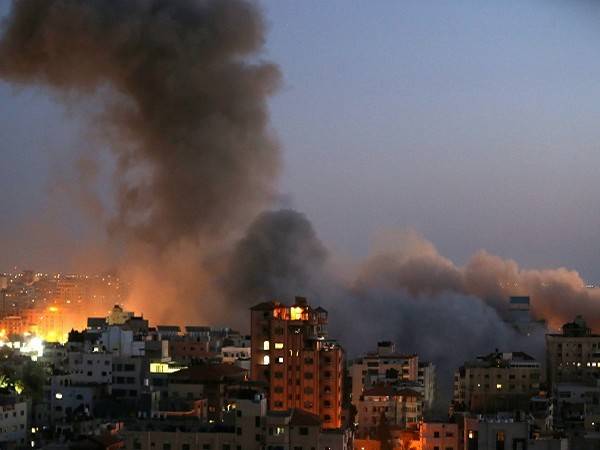The Israeli newspaper Haaretz said in an opinion article that the regional situation has not changed much a year after the war, as increasing anxiety is felt in the public against the background of the wave of attacks in recent months…. Reports Sanaa Kamal
Despite the relative calm that has prevailed in the region for a year, another round of conflict between the military factions based in the Gaza Strip and Israel is “only a matter of time” given the current Palestinian-Israeli high tensions, Palestinian political experts said.
One year after the bruising 11-day war between Israel and Hamas, the ruling faction of Gaza, which killed more than 260 Palestinians and 14 Israelis, the besieged Palestinian enclave is still working hard on its economic recovery even as Israel has partially reopened the crossings to allow thousands of Palestinians to work inside it and the construction materials into Gaza for its rebuilding in the aftermath of the war.
In fact, the armed Palestinian factions and Israel have never reached any final political and economic solutions to real peace in the region, the experts told Xinhua in separate remarks.
“The factors that caused the last wave of conflict are still going on, whether in Gaza or in East Jerusalem and the West Bank,” said Mukhaimer Abu Saada, a Gaza-based political expert.
“The Israelis continue to storm Al-Aqsa Mosque compound, prevent worshippers from performing their religious rituals. Meanwhile, they launch raids and arrest Palestinians in the West Bank, and keep their siege on the Gaza Strip,” he explained.
Recently, some Israeli officials have openly threatened to assassinate Yahya Sinwar, Hamas’ leader in Gaza who, in a recent speech, called on young Palestinians inside Israel to continue their individual operations in retaliation for Israel’s practices at Al-Aqsa Mosque compound.
If Sinwar is “assassinated,” Hamas, which has understated the threat, will wage “a fierce war” against Israel, which may extend to other areas outside the Gaza Strip, Abu Saada warned.
Hussam al-Dajani, another Gaza-based political expert, agreed that “things may take a turn for the worst” if Israeli Prime Minister Naftali Bennett “succumbs to the pressure of the extreme right-wing parties.”
Still, al-Dajani has reservations about a steep military escalation in the region despite the murky prospect of a final political solution between Palestinians and Israelis.
“There must be a strong determinant that imposes that approach, such as the assassination of one of Hamas’ leaders. However, Israel will think a lot before doing that,” he said, adding both Hamas and Israel “are not interested in a new war.”
The Israeli newspaper Haaretz said in an opinion article that the regional situation has not changed much a year after the war, as increasing anxiety is felt in the public against the background of the wave of attacks in recent months.
However, the Israeli coalition led by Bennett is now in its worst condition as the coalition is barely surviving, the opinion article read, noting a government “in a state of multiple crises will have difficulty managing a fight over a period of time.”
Hazem Qassem, a spokesman of Hamas, told Xinhua that Hamas and Israel have suspended all their talks, directly and indirectly, since they reached a cease-fire last year for the May conflict.
“We do not want another war, but if Israel forces us to do so, we will certainly be ready to defend our people and our land at all costs,” Qassem said, suggesting Arab and international mediators’ efforts might not bear any fruit.
Meanwhile, the Israeli Security Agency said it has arrested members of a Hamas group in East Jerusalem over terrorist schemes, including attempts to murder Israeli politicians in early April.
“The suspects planned, among other things, to shoot at Israeli targets and public figures, including lawmaker Itamar Ben-Gvir, manufacture IEDs (improvised explosive devices) and abduct soldiers,” the agency, or Shin Bet, said in a statement.
ALSO READ: Israel to reopen main crossing point with Gaza
The suspects were also accused of acquiring a drone in order to install explosives on it and use it to attack the Jerusalem light rail, according to the agency.
The Israeli State Attorney accused Rashid Rashak, a Hamas militant in East Jerusalem’s Old City, and Mansur Tzafadi, a Hamas militant from the neighborhood of Abu Tor, of leading the cell.
Shin Bet said Israeli security forces “will continue to take determined action in order to deal with those involved in terrorism, especially in Jerusalem, to the fullest extent of the law.”
Israel captured East Jerusalem and the rest of the West Bank in the 1967 Middle East war and annexed it shortly later, in a move not recognized by most of the international community. The Palestinians wish to build the capital of their state in East Jerusalem.

